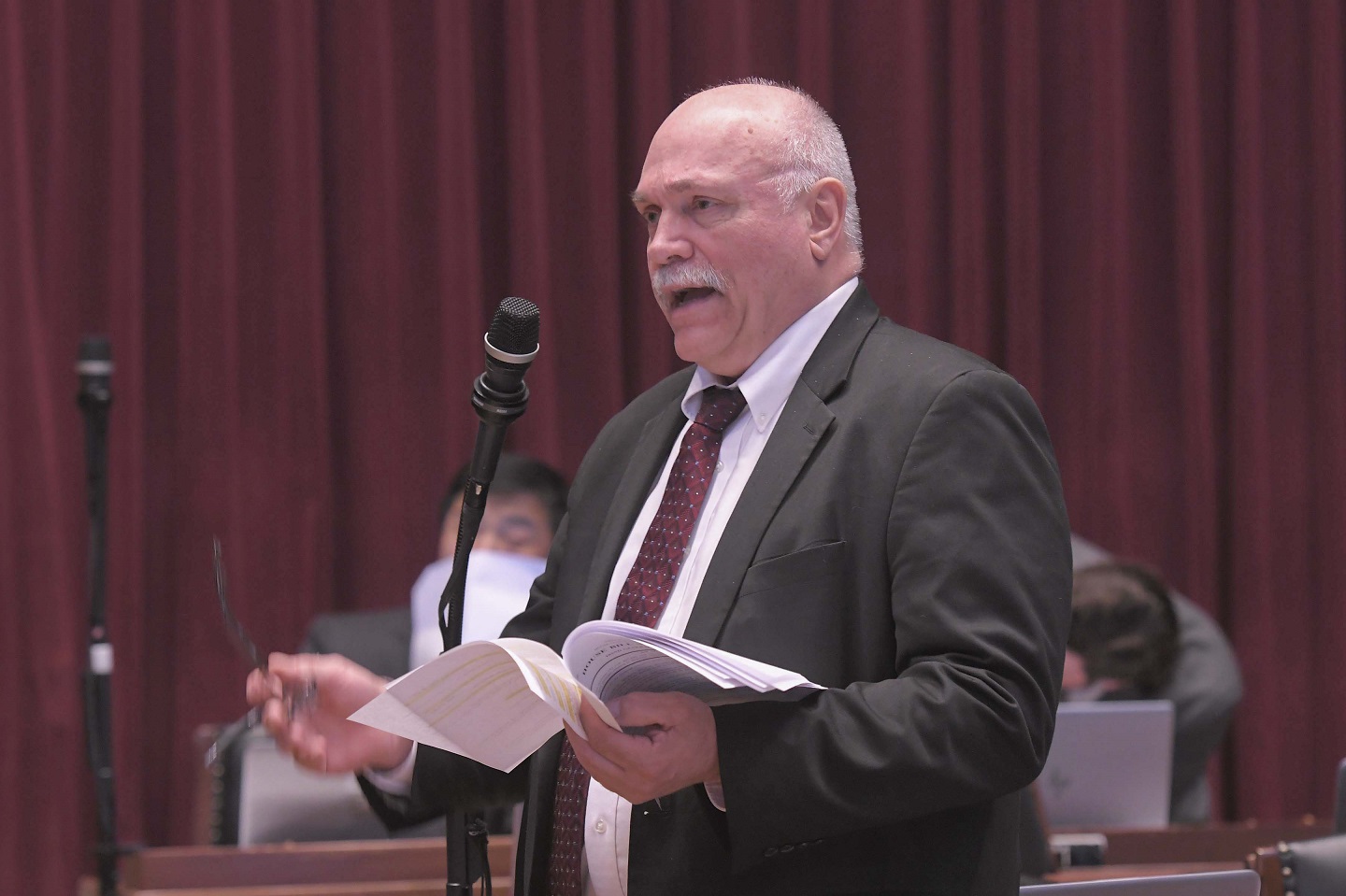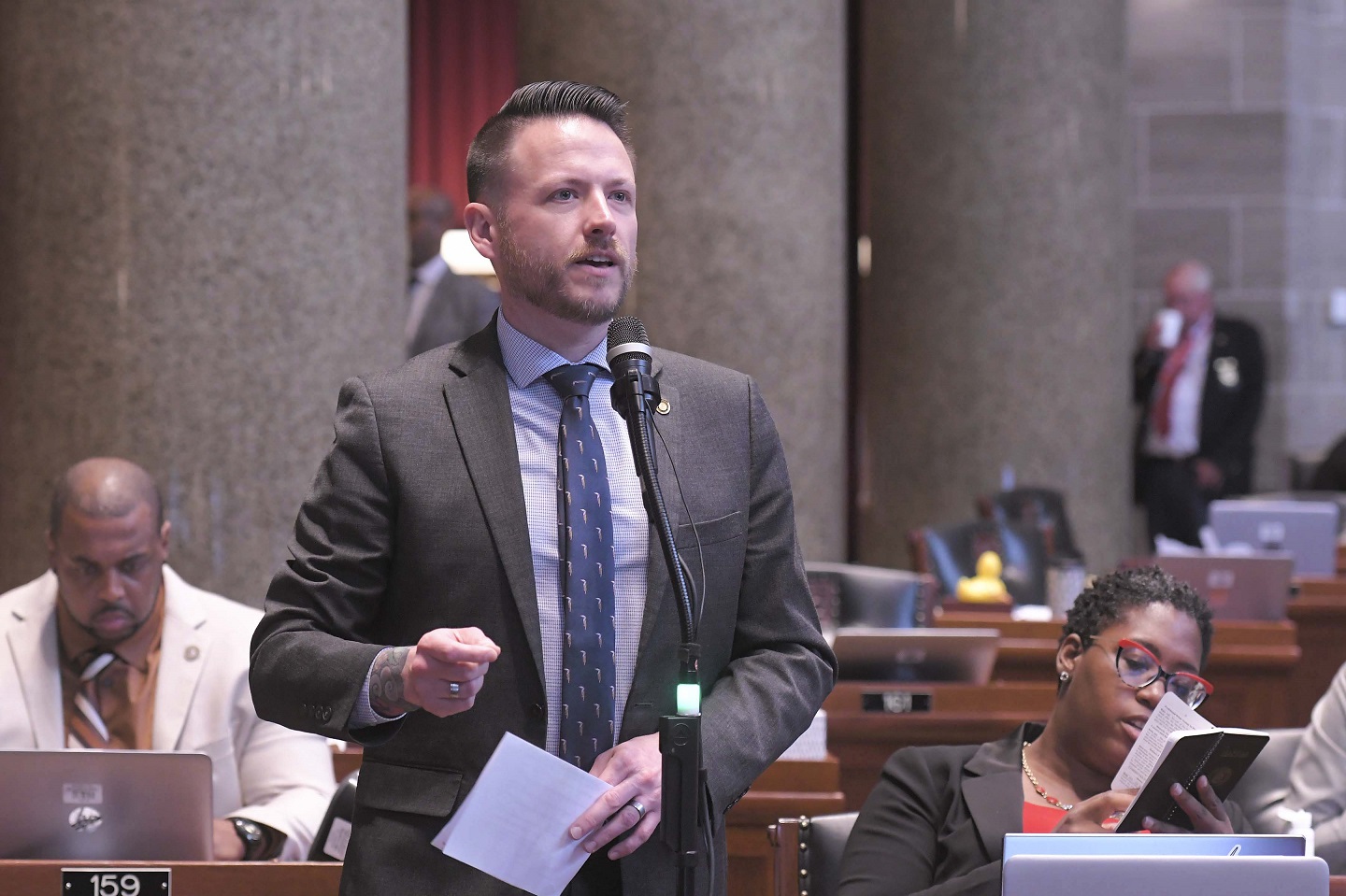Legislators will again this year be asked to stem the thefts of catalytic converters from Missourians and in doing so, it is hoped, get some people into drug treatment programs that could improve their lives.
The House in the last two years has given overwhelming approval to bills that would make such thefts a felony, while requiring additional reporting to the state from entities that purchase catalytic converters. The same proposal will be among those filed for the 2024 session after prefiling begins on December 1.
Representative Don Mayhew (R-Crocker) says that the bill has been refined over several sessions.
“I think at this point we have vetted this thing to death,” said Mayhew.
The proposal’s bipartisan support includes Representative Aaron Crossley (D-Independence), who has himself filed a portion of that language. He said the issue has impacted his neighborhood and workplace.
Mayhew has become adept at explaining the issue, having presented it to his colleagues several times over the years. It begins with the two very different ways catalytic converters are valued: their value when stolen and scrapped, and the value to replace them.
“To me it’s also a working person’s issue,” Crossley said. “When somebody has to go out and replace their catalytic converter and those can cost anywhere from $1,000 to $5,000 to replace, that’s a big chunk of change for a working person to have to go put down just to get a small part for their car replaced.”
Converters are an easy and profitable target because an experienced thief can steal one in as little as 30 seconds, and because they contain rare and valuable metals they can be sold to a salvager for anywhere from $50 to $900.
Even in the case of a new vehicle with full coverage insurance, the deductible cost is usually more than the cost of replacing the converter. Mayhew says most people who are victims of such thefts have liability coverage only.
Democrats have been very vocal in recent years in opposing legislation that would increase sentencing in other areas of law. Crossley says in this case, however, stiffened penalties make sense.
Mayhew said there would be an element of compassion in increasing these penalties. It could get more people into the drug treatment programs of the state’s courts, which have historically been very effective.
“Most catalytic converters are stolen because the person who’s stealing it has a drug problem. Well until we make it a felony then we can’t get that person to drug court. On a misdemeanor, they don’t go to drug court, but on a felony, then our local prosecutors can, in those cases where it was a person who was simply trying to feed this habit that they’ve acquired, if we can get them to drug court maybe we can kill two birds with one stone,” explains Mayhew. “We can help this person, turn them into a productive citizen, but also reduce the amount of crime that’s happening in our county.”
Mayhew said the proposed changes in reporting requirements for salvagers would also increase accountability for those buyers.
That includes getting a photocopy of the seller’s driver’s license and recording the license plate number of the vehicle that brought in the converter – both of which are already required – and the proposed new requirements of getting the make, model, and serial number of the vehicle off of which the converter came; and providing a signed affidavit saying the converter wasn’t stolen. These new requirements would only apply to individuals, rather than established businesses.
Crossley supports the additional reporting requirements, and it is this area with which his legislation filed in the 2023 session dealt.
Mayhew said such reporting would also let Missouri at last know how many catalytic converters are being salvaged, and “keep honest people honest.
Mayhew notes that in the last two years, legislation dealing with this issue has passed out of the House 153-1 and 143-2, and in at least one of those cases, he said a “no” vote came from someone who thought he was voting on a different amendment. He said the legislation isn’t just a caucus priority, it’s a legislative priority.
He and Crossley hope that 2024 proves to be the year that the measure makes it into statute.
“It’s a growing issue that we have to tackle because nobody is served by not doing anything,” said Crossley.
The new legislative session begins January 3.

